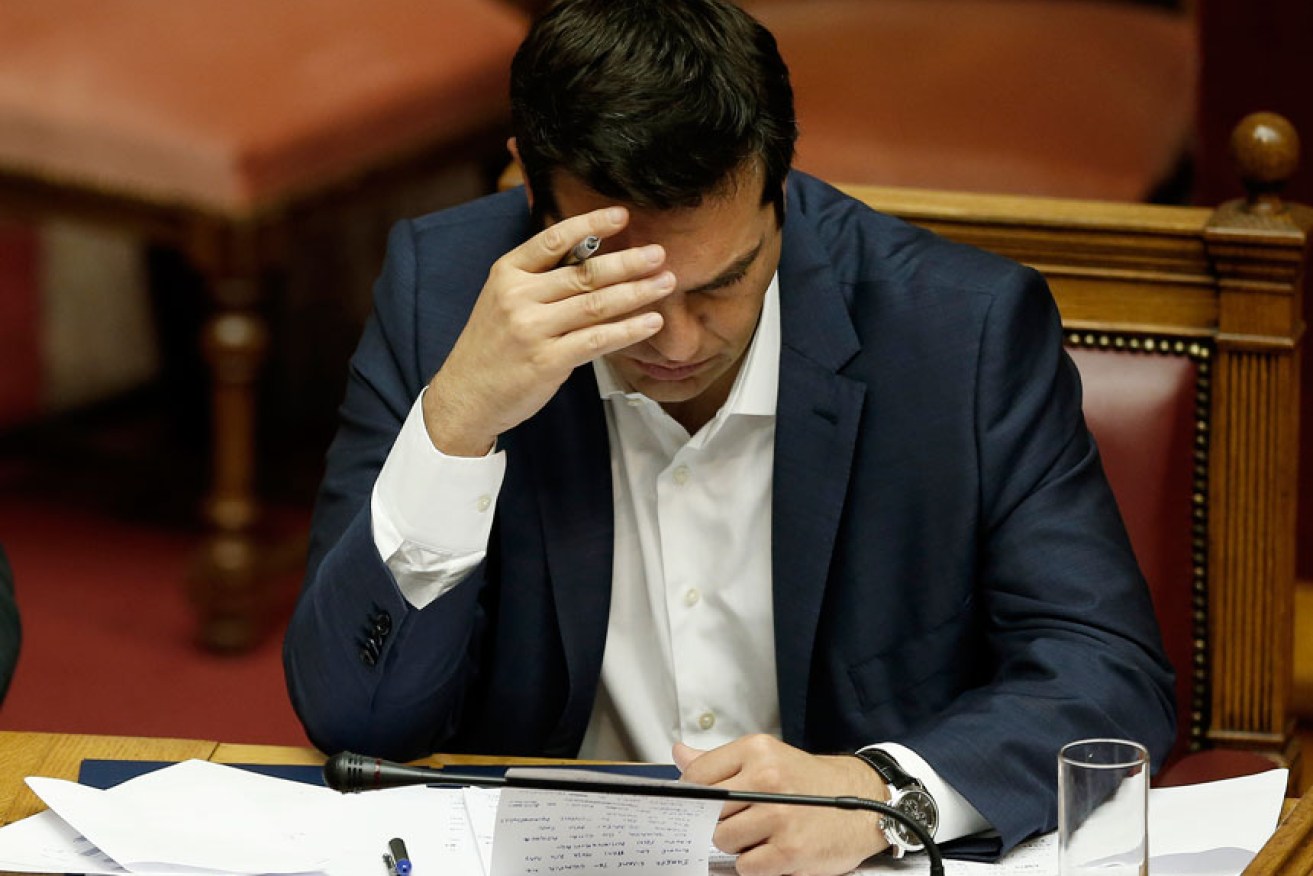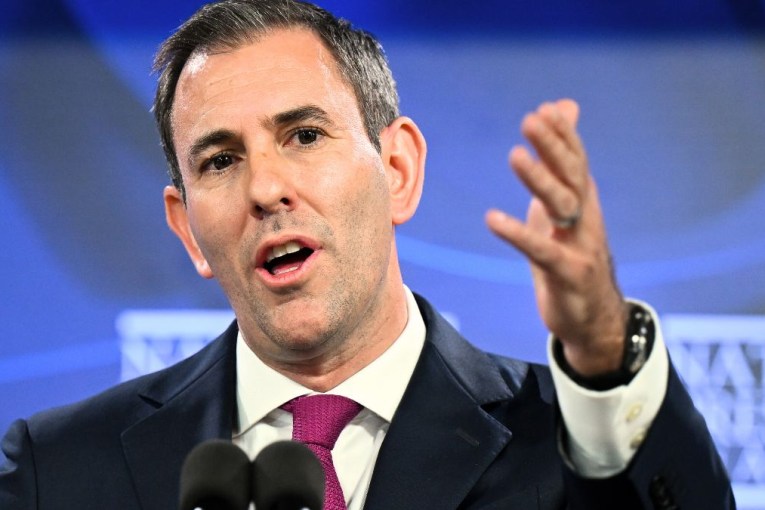Greece teeters on brink of default

AAP
Greece appears set to default on a key IMF repayment, fanning fears of a chaotic eurozone exit on the day the country’s international bailout also expires.
Prime Minister Alexis Tsipras has urged Greeks to reject creditors’ tough reform demands in a referendum on Sunday, but has also pleaded for a bailout extension to keep Athens afloat.
Failure to pay would see Greece become the first country to default on the International Monetary Fund since Zimbabwe in 2001, and in terms of standards of living, it would be the wealthiest.
• Carnage on global sharemarkets
• Forget Greece, this is the real crisis to worry about
• Billions wiped off sharemarket
• ‘No more money’: Greece shuts down banks
Tsipras, elected on an anti-austerity ticket in January, has made clear Greece would be unable to make the 1.5 billion euros ($A2.20 billion) payment due to the IMF on Tuesday.
“(How) is it possible the creditors are waiting for the IMF payment while our banks are being suffocated?” he said in a late-evening interview on ERT television.
Thousands of people poured on to the streets of Greece’s two biggest cities, Athens and Thessaloniki, on Monday night to support their government’s opposition to the latest proposals, after a clash with creditors forced the closure of banks and the imposition of capital controls.
Greece’s international bailout program from its “troika” of lenders – the European Union, European Central Bank and the IMF – also expires on Tuesday.
Talks between Greece’s leftist government and its creditors fell apart after Tsipras called a shock referendum on the latest proposals.

Greek Prime Minister Alexis Tsipras deep in thought. Photo: AAP
Tsipras sought to calm nerves on Monday by leaving the door open to talks, saying the July 5 plebiscite on the creditors’ latest cash-for-reform plans would leave Greece “better armed” in the fight for a debt deal.
EU leaders including Germany’s Angela Merkel, France’s Francois Hollande and Italy’s Matteo Renzi, wrong-footed by Tsipras, warned it would effectively be a vote on Greece’s place in the eurozone.
On Monday, an emotional European Commission head Jean-Claude Juncker bitterly criticised Tsipras, saying he felt “betrayed” by the hard-left Syriza government.
“A ‘no’ would mean, regardless of the question posed, that Greece had said no to Europe,” said Juncker.
Spanish Prime Minister Mariano Rajoy added on Tuesday that a “yes” win in the referendum would allow Greece’s creditors to negotiate with a new government.
Athens lashed back on Tuesday, with Labour Minister Panos Skourletis warning that European leaders want to “sink” Greece’s ruling Syriza party to block the rise of other far-left anti-austerity parties like its ally Podemos in Spain.

Greeks have drained 500 ATMs as financial worries mount. Photo: AAP
European leaders “fear the rise of forces like Podemos and they want to take the wind out of their sails through any means possible”, Skourletis said in an interview.
“And the way to do it is to sink us, so that Syriza in Greece can’t be an example for other European nations in a similar situation.”
Skourletis labelled Juncker’s call for Greeks to vote yes in the referendum as a “provocation”.
“Today they interfere in the interior affairs of Greece, tomorrow they will do it in Spain and Italy,” said Skourletis, a heavyweight in Greece’s coalition government.
Many Greeks backed the government’s defiant stance against the country’s creditors, who they blame for forcing the country into years of painful recession by demanding swingeing austerity cuts.
Eurogroup head Jeroen Dijsselbloem has meanwhile said further talks were possible and Merkel said any new negotiations with Greece should come after the referendum.
In more gloomy news for Athens, Standard & Poor’s ratings agency downgraded Greece’s credit assessment deeper into junk territory, saying the referendum brought it closer to default.
Fitch also cut its ratings on four major Greek banks to “restricted default”.
Greece has debt worth nearly 180 per cent of its GDP after receiving two bailouts worth 240 billion euros since 2010. Unemployment has more than doubled since 2009 to 25.6 per cent and pensions and benefits roughly halved between 2010 and 2014.
-AAP








